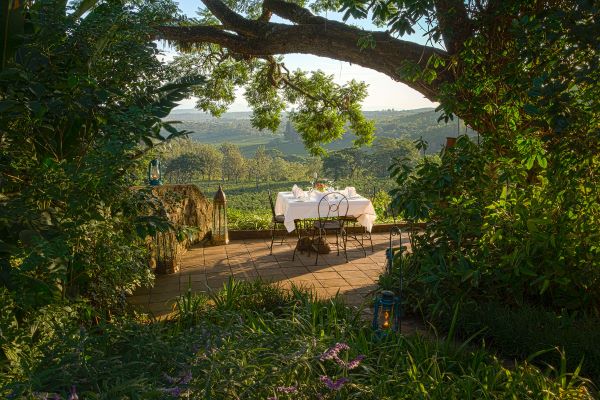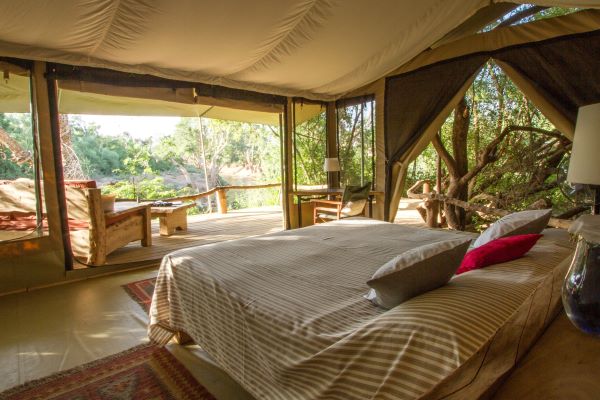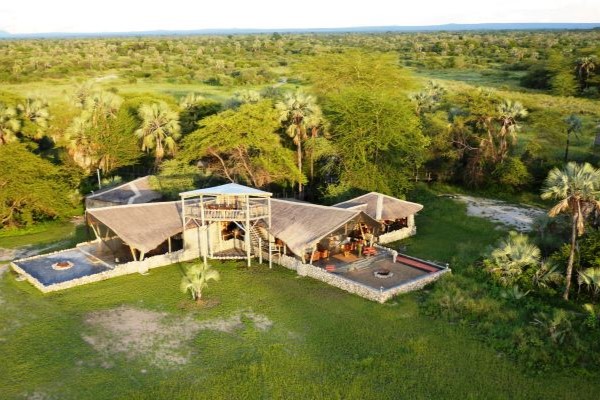Africa’s national parks and conservancies

What are the differences between national parks, national reserves, concessions and conservancies?
There are many ways in which land is managed for wildlife throughout Africa. By choosing to safari here, you help to support the conservation of wildlife and wild places and the livelihoods of local people and communities. Here we explore the differences between Africa’s national parks, national reserves, concessions and conservancies and what it means for your safari.
National parks and national reserves
These are protected areas managed by national governments which sometimes also have international protection. Many are long-established regions of pristine biodiversity that are protected due to the density of wildlife or outstanding geological features. Open to the public, they are often managed with greater restrictions to help reduce the effect visitors have on the surrounding habitat and wildlife. Some can become very busy during the peak tourist season, whilst others are quiet year-round.
The world-renowned Serengeti National Park in Tanzania is managed directly by Tanzania National Parks and is also a UNESCO World Heritage Site. One of the most popular reasons to visit is the great wildebeest migration, which flows freely through the greater Serengeti ecosystem and into the Masai Mara National Reserve in Kenya.
Another famous area is Volcanoes National Park in Rwanda, which manages visitor access with a limited number of paid permits that allow guests to trek into the forests of the Virunga Mountains with a national park ranger and experience a close-up encounter with endangered mountain gorillas. A proportion of the permit fee is used to fund activities related to protecting these majestic primates.
What it means for your safari:
National Parks attract greater visitor numbers because they are often well-known. Activities are usually limited and mainly consist of wildlife drives and photography, following the dirt roads and spotting the wildlife around you. Walking safaris and night drives are possible in some national parks and hot air balloon rides are possible in Serengeti and Ruaha National Parks in Tanzania and the Masai Mara National Reserve in Kenya.
Concessions and Conservancies
Concessions and wildlife conservancies are either privately owned or leased from the state or local community and managed privately. Wildlife is sometimes free to move between conservancies and national parks, and sometimes movement is restricted by fences. Some conservancies are linked to create corridors providing a safe passage for migratory species to use historical routes, prevent fragmentation, and allow animals to breed, feed and shelter. This helps to maintain the ecology of the habitat and contributes to species survival.
Famous conservancies include those in Kenya around the Masai Mara ecosystem and further north in Laikipia, where over 30 conservancies protect more than a million acres. Well known private concessions include those in Botswana’s magnificent Okavango Delta, which are leased to safari companies under strict environmental and community engagement terms.
What it means for your safari:
Only guests staying in the lodges on any conservancy have access to that conservancy. This gives a much more exclusive feel and eliminates the risk of wildlife being crowded by vehicles. Lodge and conservancy managers have the freedom to manage activities, and pursuits such as walking safaris, night drives, horse riding, camel trekking, mountain biking, canoeing, rock climbing and even sleeping out under the stars are all possible. They are an excellent choice for families as children can get out of a vehicle and safely experience the bush alongside guides who can teach them the secrets of the nature around them. In some places, it is possible to join conservation efforts; meeting the anti-poaching dogs and units on the frontline or joining a researcher to learn more about their studies.
Private reserves
Private reserves are privately or community owned land, often restored and rewilded from former farmland. The introduction of ecotourism helps to fund the conservation, which could include monitoring and managing individual species, habitat restoration, or supporting vital research. It also provides opportunities for local communities, with employment and training in the lodges, or as guides, collaborating on educational projects and working on ways to protect the wildlife on the reserve and nearby. One great thing about private reserves is the expansion of wildlife habitat that results from their creation.
The management of private reserves can vary between countries. For example, in South Africa they must have a perimeter fence, whereas in Tanzania, many of the reserves are adjoining national parks without fences, and the wildlife is free to move in and out.
In Tanzania, the Grumeti Reserves are adjacent to the Serengeti National Park and protect part of the route of the great wildebeest migration in an area which was once ravaged by poaching and human encroachment. It’s the perfect location for a safari, with spectacular scenery, superb wildlife, and very few vehicles.
What it means for your safari:
Privacy, flexibility, and freedom to enjoy vast areas shared with a small number of visitors and few vehicles. Much like conservancies and private concessions, the activities are varied, and there is often the chance to see conservation projects at work.
There is a lot to consider when planning a safari. Whether you choose to visit Africa’s national parks, national reserves, conservancies, concessions or a combination, our team of experts is on hand to help guide you through the process and ensure you make the most of your holiday.
What Next
We would be delighted to help you plan a holiday, or answer any questions if you’re at an earlier stage. Our team of experts have travelled widely throughout Africa. They can offer expert advice on every type of safari from family and beach holidays to riding and primate safaris. If you would like to talk to someone who has been there and done it, please just send us an email or give us a call.












Leave a Reply